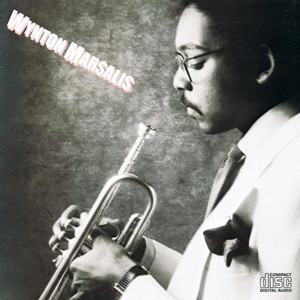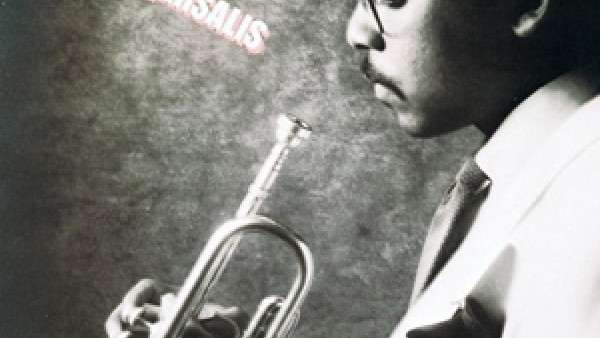Marsalis keeps jazz, classical apart
Trumpeter Wynton Marsalis is the chameleon of the music world, standing astride the charts in both classical and jazz idioms. But don’t get the idea that he plays a classical engagement and then goes off to jam in a jazz club.
“I never play them together because I’d have trouble the next day with [my] technique,” Mr. Marsalis said recently. “It’s too hard to switch from one to the other because they’re so different. The attack is different and the textures are totally different.”
On his most recent stop in town, the 22-year-old star performed jazz at last month’s Artscape celebration. He’ll return tonight at 8 to play trumpet concertos by Haydn and Hummel with the Baltimore Symphony Orchestra at Oregon Ridge Park.
“I know them both, but I’m working at them every day,” he said of the pieces, both of which are about 20 minutes long. “I’m fortunate in being able to learn relatively quickly, but I really have to study the [different forms].”
Despite the fact jazz is noted for its free-flowing improvisation, Mr. Marsalis finds more freedom in the classics. “There’s more freedom in playing music that’s already written,” he said. “For instance, the Haydn Trumpet Concerto [in E-flat] sounds great even if it’s poorly played. My biggest problem is to play it correctly.
“But you never play a jazz piece the same way twice, except for the [basic] tune, so you have more variables.”
Mr. Marsalis was born in New Orleans where his father, Ellis, is a noted jazz pianist The young prodigy was playing in clubs at 13 and recalled missing only one day of practice in seven years. An older brother, Branford, plays saxophone in his jazz group. He came to the attention of the music world at the tender age of 14 when he played the Haydn trumpet concerto with the New Orleans Philharmonic. His talent propelled him to the Juilliard School of Music in New York where he studied and also played with the Brooklyn Philharmonic for a year.
However, he was best known as a jazz player and composer until his CBS Masterworks album of trumpet concertos by Haydn, Hummel and Leopold Mozart was released about a year ago. The recording with conductor Raymond Leppard and the National Philharmonic Orchestra (of London) has been at or near the top of the classical music charts ever since.
Mr. Marsalis has since recorded a CBS album of baroque music with the English Chamber Orchestra that is scheduled for release next month. The idea of combining the best of both musical worlds appeals to his aesthetic and philosophic values. “It’s all valid,” he said. “I like the different textures in music because they’re endless, like people. “Jazz is more of a mental exercise [than classical forms],” he added. “The major problem is thinking of something that sounds good with four other people. Plus, you have to keep the harmonics and rhythmic considerations in your head instead of reading them from the score.”
Though his concerts are usually sold out, his record sales outstrip almost everyone in two fields and he has received critical acclaim, Mr. Marsalis has a jaundiced view of the music business. “I don’t make that much money, at least not as much as I should be making,” he said. “There are a lot of people in the industry who will stoop to any level to make it [money] off me. And I wasn’t raised like that.
“But I’m making far more than I ever thought I would, and my primary consideration is not to make money anyway,” he said. “I just want to play for people and help them feel good and get away from their troubles. “I’m a musician and people come to hear me play, not to hear my jokes or see what I’m wearing.”
Following his Baltimore appearance, Mr. Marsalis will spend about three months on the classical circuit, during which hell play with some of the world’s finest orchestras. There are concert stops in Philadelphia, Cincinnati, Rochester, New York, Cleveland, Los Angeles and Pittsburgh before he travels to Europe to play in London, Paris and Germany.
“I haven’t played classical music in Europe yet, but I do know I’d rather play jazz in the United States than anywhere else,” he said. “People here know music better jazz at least”.
Unlike such jazz artists as Chick Corea, Mr. Marsalis said he has not drawn on his knowledge of classical forms for his jazz compositions. “I never listen to classical music to think of what I can apply to jazz,” he said. “Jazz has enough of its own masters to inspire me for a lifetime. “Whenever I need inspiration, I listen to people like Duke Ellington, Charlie Parker and Miles Davis,” he added.
“My goal is to be like them. But I’m not at that level yet – no way.”
By Jack Dawson
Source: Baltimore Sun


